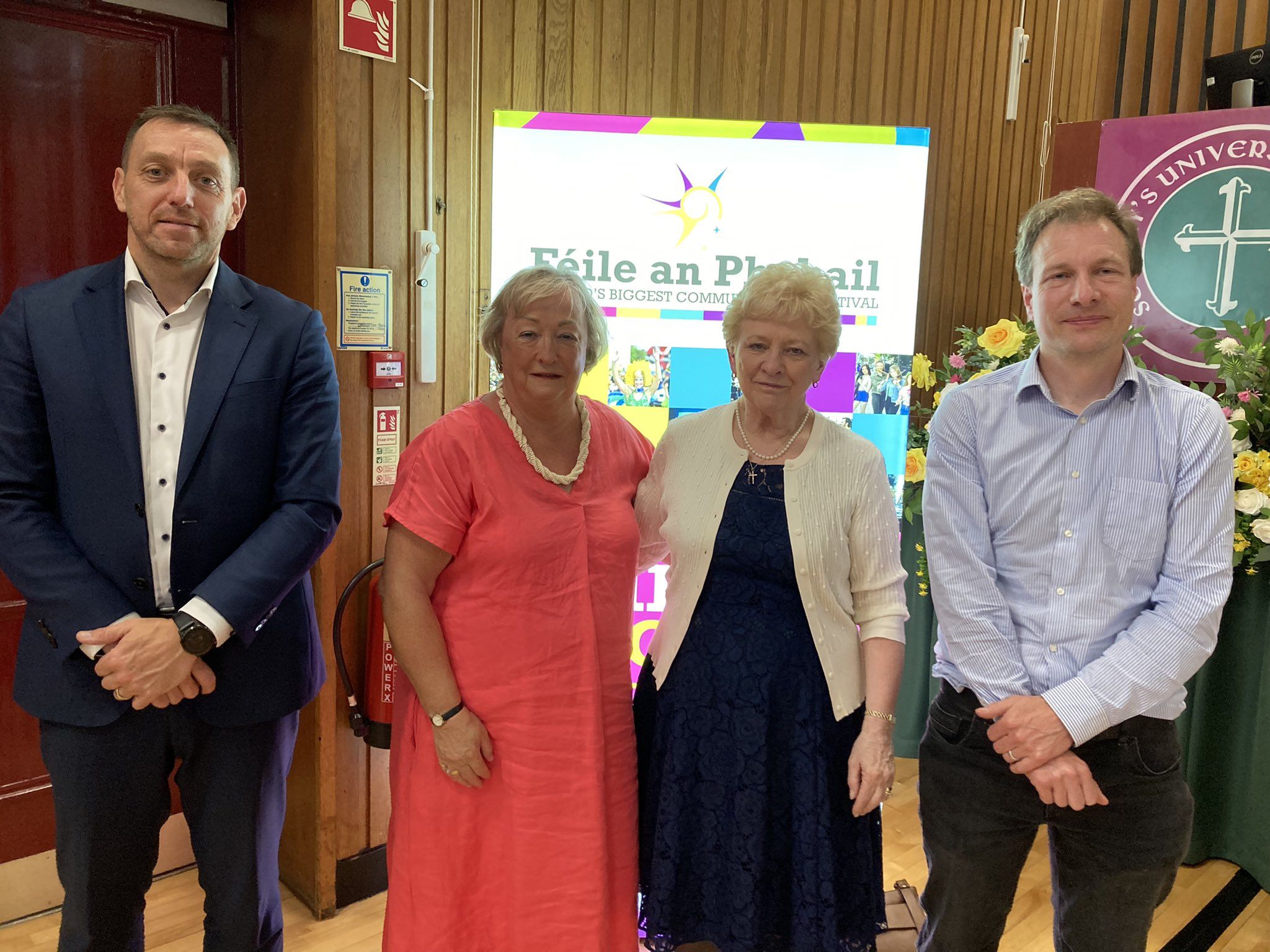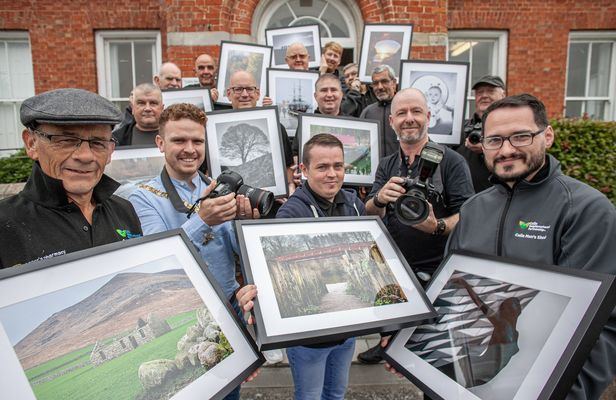A LARGE crowd gathered in St Mary’s University College for a panel discussion on legacy and victims.
The panel consisted of human rights lawyer Padraig Ó Muirigh, Daniel Holder of the Committee on the Administration of Justice, and Former Police Ombudsman Nuala O’Loan. The event was chaired by Professor Monica McWilliams.
The walls of St Mary’s were filled with newspaper reports of the Ballymurphy families' pursuit of justice. This was a reminder of the importance of legislation which ensures that the rights of families and survivors are recognised in any new legislation.
Professor McWilliams opened the event asking the three panelists for their thoughts on the British Government's controversial new proposal, the Northern Ireland Troubles Bill (Legacy and Reconciliation), which has drawn widespread criticism from across the political spectrum and the victims sector.
Daniel Holder said the Bill rolls the peace settlement back in a number of ways and added the purpose of the bill is neither information recovery or reconciliation.
‘‘I think it’s worth mentioning that procedurally it rolls back the peace settlement in a number of ways, it conflicts with the Good Friday Agreement in a few ways.
‘‘There’s a piece on the Conservative Home website where Brandon Lewis really hands himself in as to what this is really about – it isn’t about information recovery or reconciliation. The piece is entitled ‘My Northern Ireland Legacy Plan, no longer will veterans be hounded by events that happened decades ago’.
Powerful @FeileBelfast panel on the Troubles Bill with @MonicaBelfast Nuala O'Loan, Daniel Holder & @pomuirigh. Strong critique of the British state regressing to an 'official' history of concealment that violates international agreements & obligations to victims of the conflict. pic.twitter.com/IN2C8SaENW
— Dr Dawn Miranda Sherratt-Bado (@drdawnmiranda) August 9, 2022
‘‘The purpose of this bill is to shut down investigations into the military and security forces.
‘‘It’s really about resurrecting an official narrative which denies and limits states responsibility for human rights violations during the conflict.’’
Mr Holder said that legacy mechanisms today are delivering like never before.
‘‘It is no coincidence that it is now the British Government are attempting to shut it down.
‘‘A lot of the focus and critique of this Bill has been on the Amnesty issue, but in reality what this is about is shutting down all independent and effective investigations and replacing them with a body with very few powers.
‘‘This is about ending investigations but it’s much more – it’s really about controlling narrative as well.’’
Nuala O’Loan spoke next, drawing her criticisms from her own experiences as a former Police Ombudsman and her position within the House of Lords.
‘‘The legislation has been through the Commons now and passed through the Commons virtually without amendment and I find it very odd how they could exempt sexual offences and rape from the list of offences from which there could be immunity, but not murder," she said. "To me that is just bizarre.
‘‘The bill will come for its first debate to the House of Lords on the 13th of September and I have my name down to speak on that and I will speak at length about the deficiencies of the bill.
‘‘There is an assumption in England that the Northern Ireland problems are solved and that nothing is happening and that nobody is suffering any more.’’
She emphasised the lack of support for the Bill in the North and said it is not compliant with the European Convention on Human Rights. She added that the Bill should be withdrawn by the Government.
‘‘You cannot built peace unless you built upon the rule of law. This legislation denies the rule of law.’’
Another excellent debate & discussion organised by @FeileBelfast around the British government’s new legacy legislation.
— John Finucane MP (@johnfinucane) August 9, 2022
As the panel all agreed, the bill runs contrary to the rule of law & stands in the way of reconciliation.
The bill should be withdrawn. pic.twitter.com/TRRKHnmr23
The final speaker was Human Rights Lawyer, Padraig Ó Muirigh, who opened his contribution by sending his solidarity to the Ballymurphy families on the 51st anniversary of their loved ones' deaths, and also to the family of Dessie Healey whose anniversary is on the same date.
‘‘The law is a tool, in my opinion, and has being used by the state in the past to deny human rights abuses, but what we have seen in the last decade or not has been a reversal of that and the key ingredient of that has been the incorporation of the European Convention on Human Rights into domestic law," he said.
He spoke in detail about the Ballymurphy Inquest and the importance of the legal processes.
‘‘The law isn’t automatically in line with justice, but we must work to align it with justice.
‘‘These proposals are an attempt to reverse that, to align it with injustice again, and to conceal the truth.
‘‘My view is that they are going to run this through, it is a very clear attempt to reverse the gains that families have made.’’
The discussion concluded with agreement that the legislation will be pushed through, and that robust opposition is the only thing now with a chance of stopping it, and particular emphasis was placed on international support and the role of the Irish Government.








